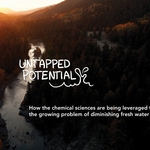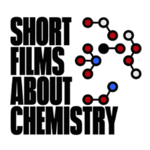“Untapped Potential” explores how the chemical sciences are being leveraged to solve the growing problem of diminishing fresh water sources
NEW YORK–(BUSINESS WIRE)–#advancedoxidation—Chemistry Shorts today announces the release of its newest film “Untapped Potential”, which highlights both the critical challenges and chemistry-inspired innovations in water supply, re-use, and purification. The nine-minute film features environmental and chemical engineering experts David L. Sedlak, PhD, Professor, University of California Berkeley, Meagan Mauter, PhD, Associate Professor, Stanford University, and William Tarpeh, PhD, Assistant Professor, Stanford University.
“Ensuring a safe water supply is one of the most compelling challenges humanity faces in the 21st century. With a clear narrative and stunning visuals, this film aims to enlighten and inspire by highlighting the game-changing solutions being developed in the chemical sciences. Targeting an audience of high school and college chemistry students, its appeal may be much broader,” says H. Scott Walter, President of the Camille and Henry Dreyfus Foundation Board of Directors. The film is available for immediate viewing and use in teaching free of charge on Chemistry Shorts YouTube channel. A full lesson plan to accompany the film is available on the Chemistry Shorts website.
“Untapped Potential” is the fourth addition to the well-received Chemistry Shorts film series presented by the Dreyfus Foundation. The series spotlights the positive impact of chemistry on modern life as scientists work to solve important problems and create new opportunities that benefit humanity. Learn more about Chemistry Shorts and see all of the films and lesson plans in this series at chemistryshorts.org.
Chemistry Shorts recently received a major grant from the Gordon and Betty Moore Foundation. This partnership will increase the reach of the film series, allowing for at least six additional films to be produced over the next three years. “We are excited about this opportunity to promote a broader understanding and appreciation of the chemical sciences and hope it inspires a new generation of scientists and path-breaking scientific discoveries,” says Gary Greenburg, Program Officer at the Gordon and Betty Moore Foundation.
Additional support for this series has been provided by The Research Corporation for Science Advancement.
About the Camille and Henry Dreyfus Foundation
The mission of the Camille and Henry Dreyfus Foundation, Inc. is to advance the science of chemistry, chemical engineering, and related sciences as a means of improving human relations and circumstances throughout the world. Since its establishment in 1946 as a non-profit organization, the Foundation has awarded over $150 million in support of these goals. Current Dreyfus programs support young faculty accomplished in both research and teaching, further the exploration of emerging fields, recognize exceptional and original research that has advanced the field with the Dreyfus Prize, and fund lectureships at primarily undergraduate institutions. Learn more about the Camille and Henry Dreyfus Foundation by visiting its website.
About the Gordon and Betty Moore Foundation
Gordon and Betty Moore established the foundation to create positive outcomes for future generations. In pursuit of that vision, it fosters path-breaking scientific discovery, environmental conservation, patient care improvements, and preservation of the character of the San Francisco Bay Area. Learn more about the Gordon and Betty Moore Foundation by visiting its website.
Contacts
Scott A. Siegel, Executive Director
The Camille and Henry Dreyfus Foundation
Email: pr@dreyfus.org






